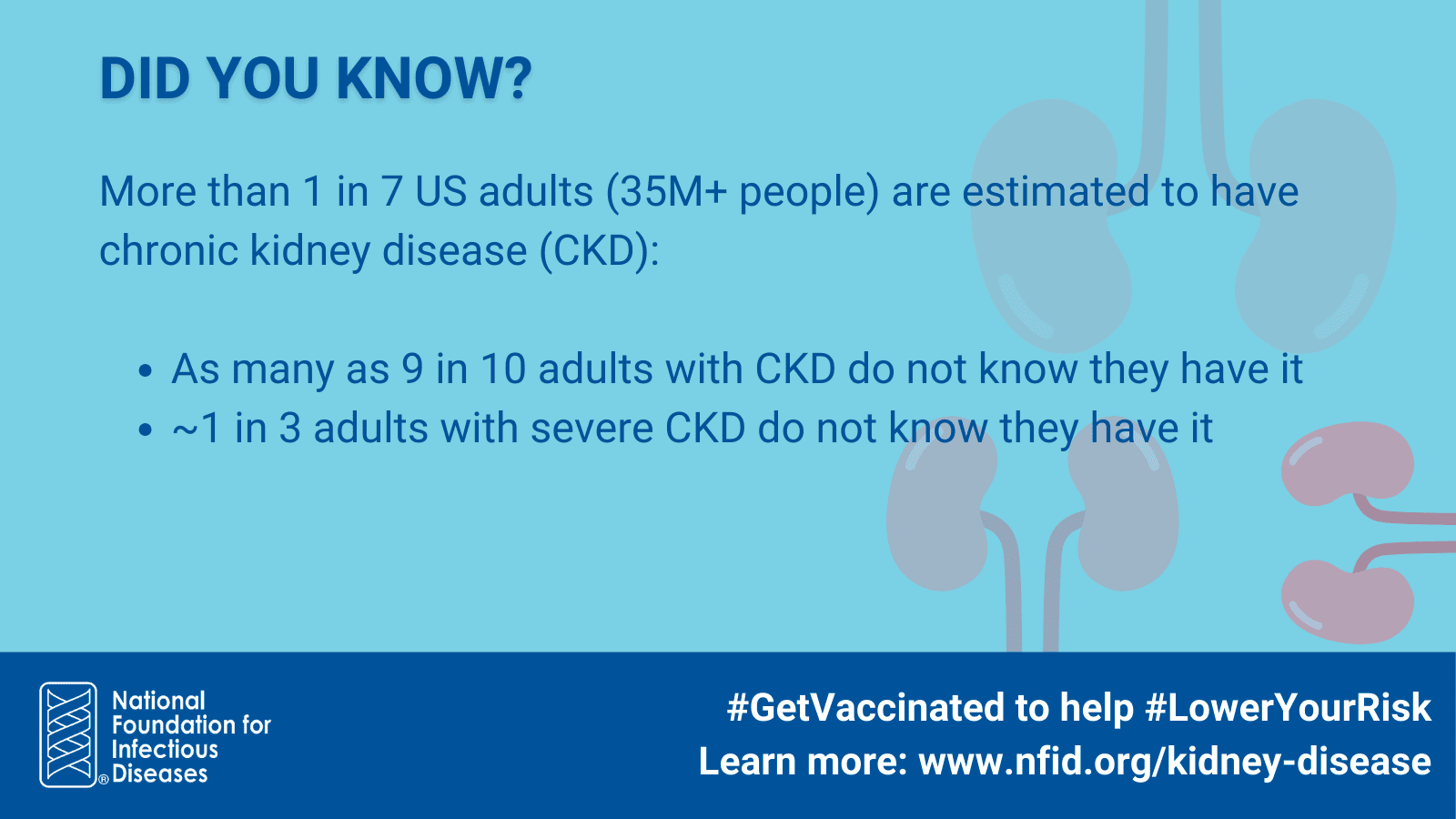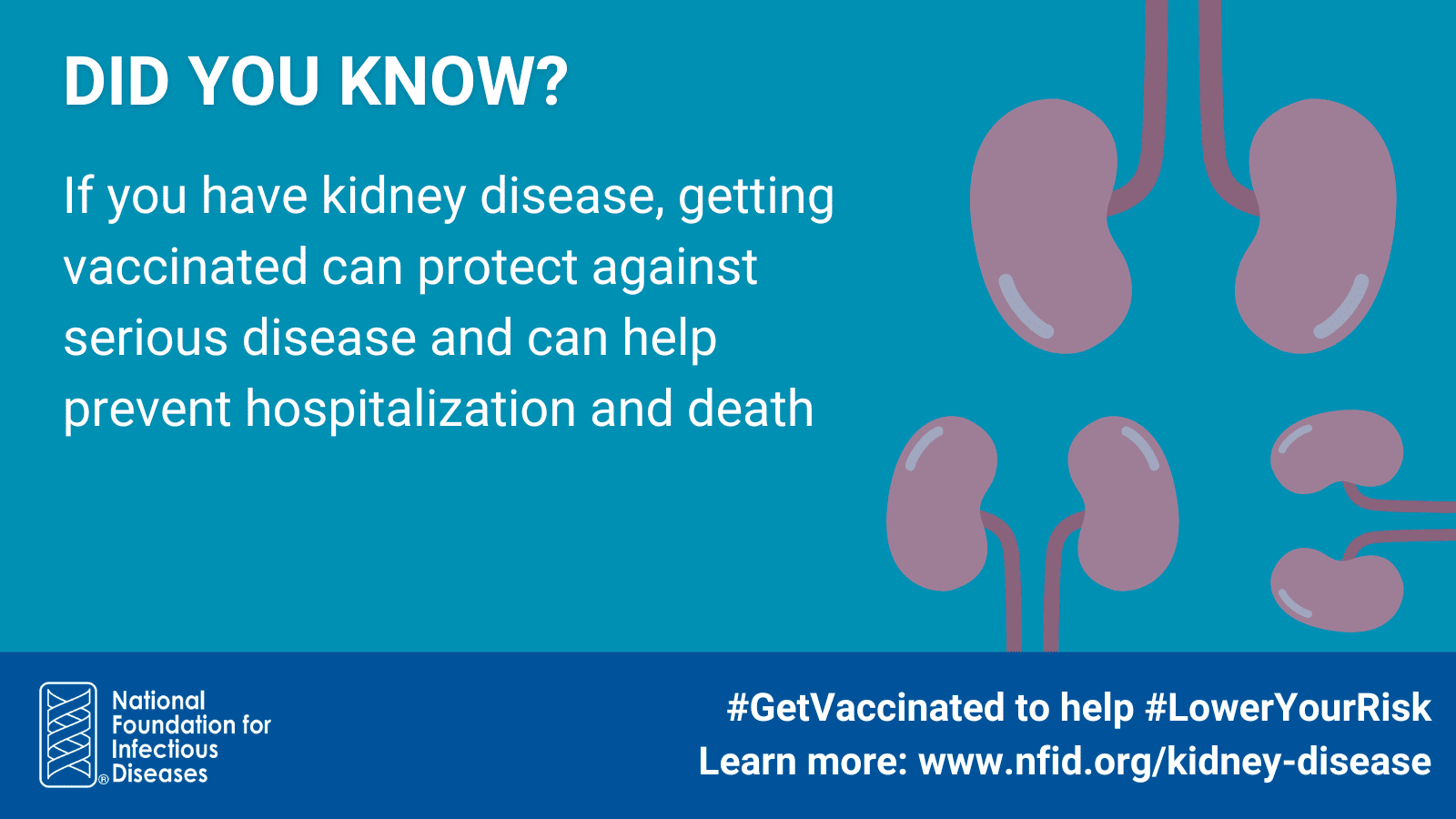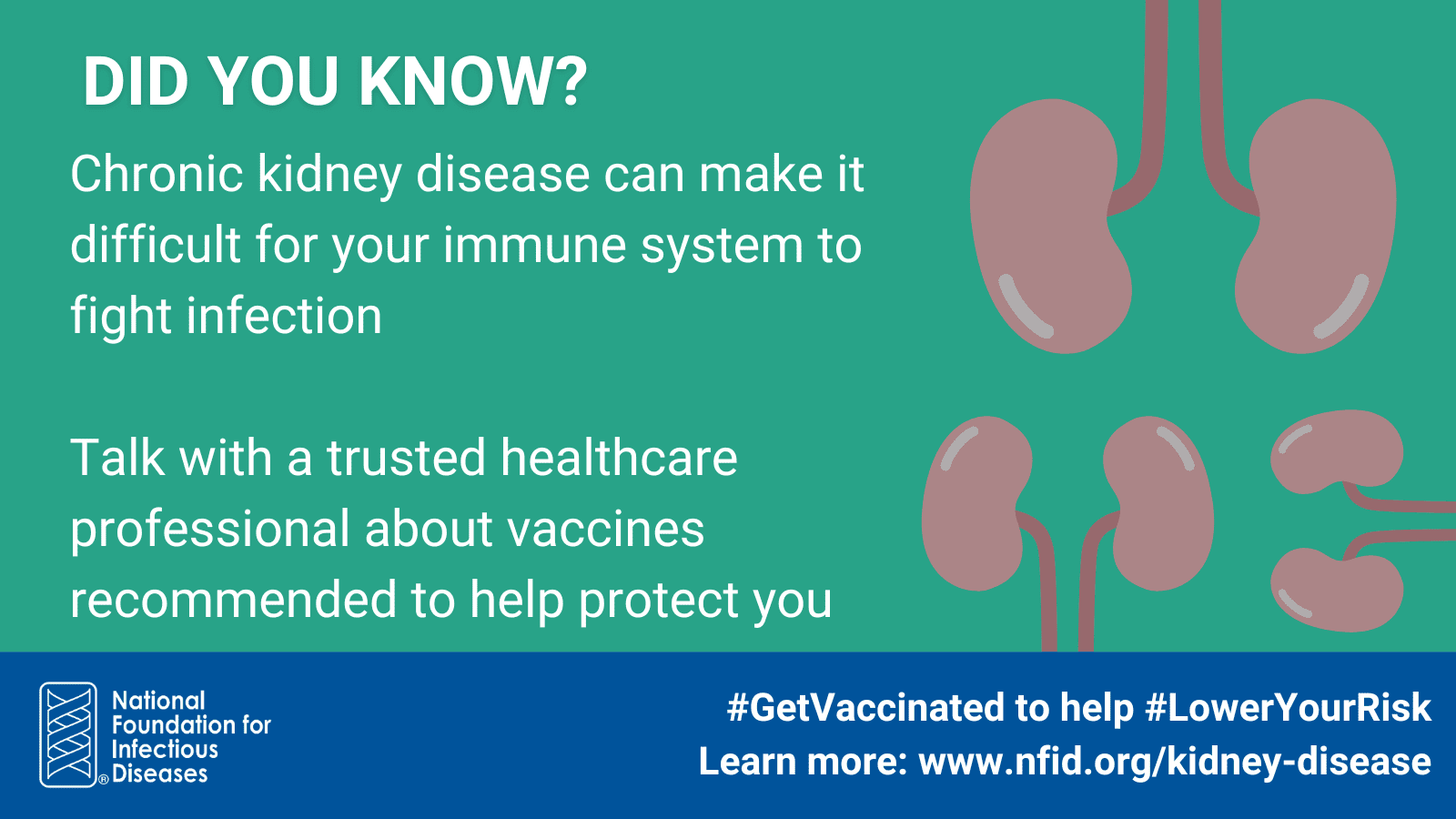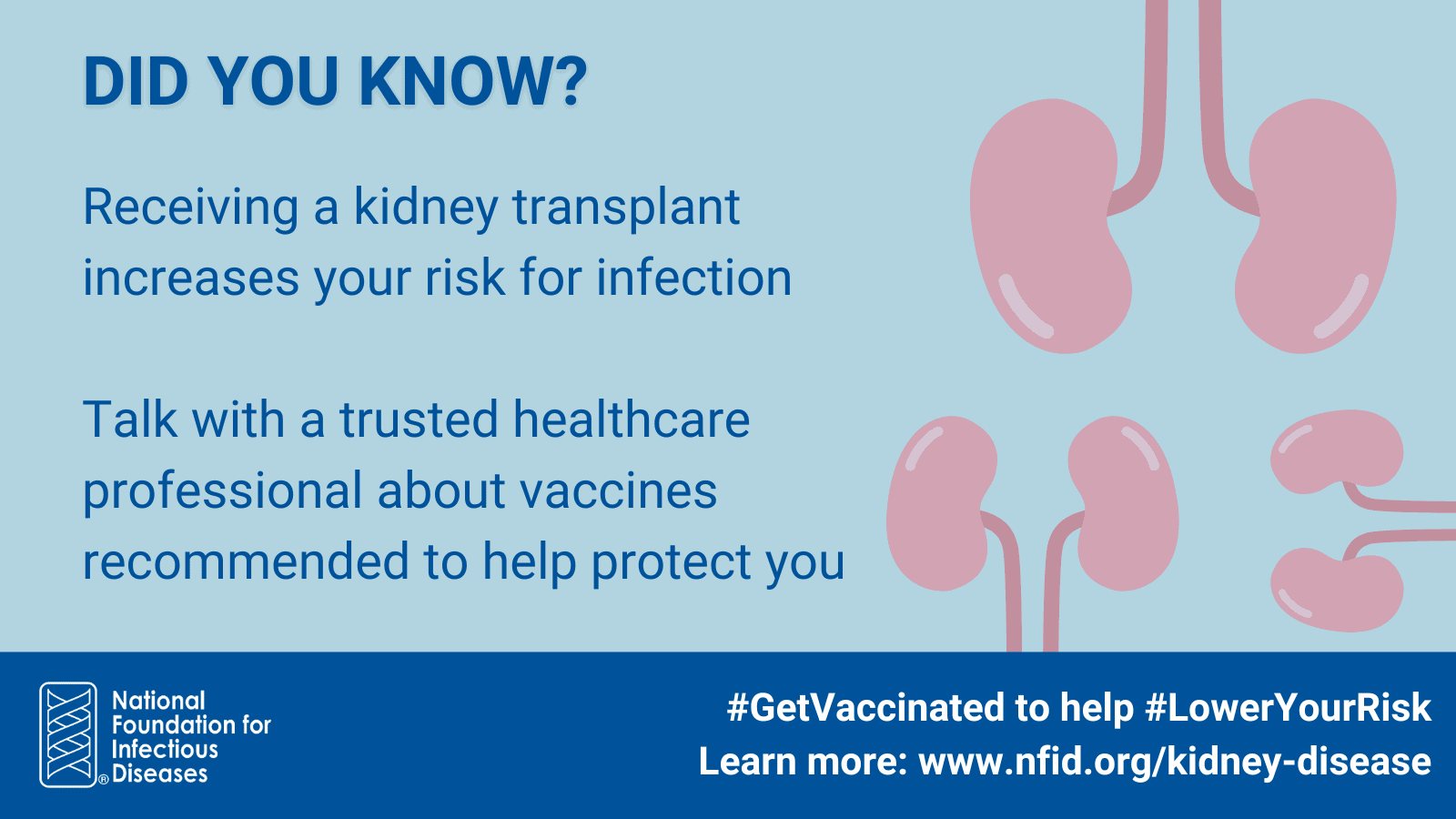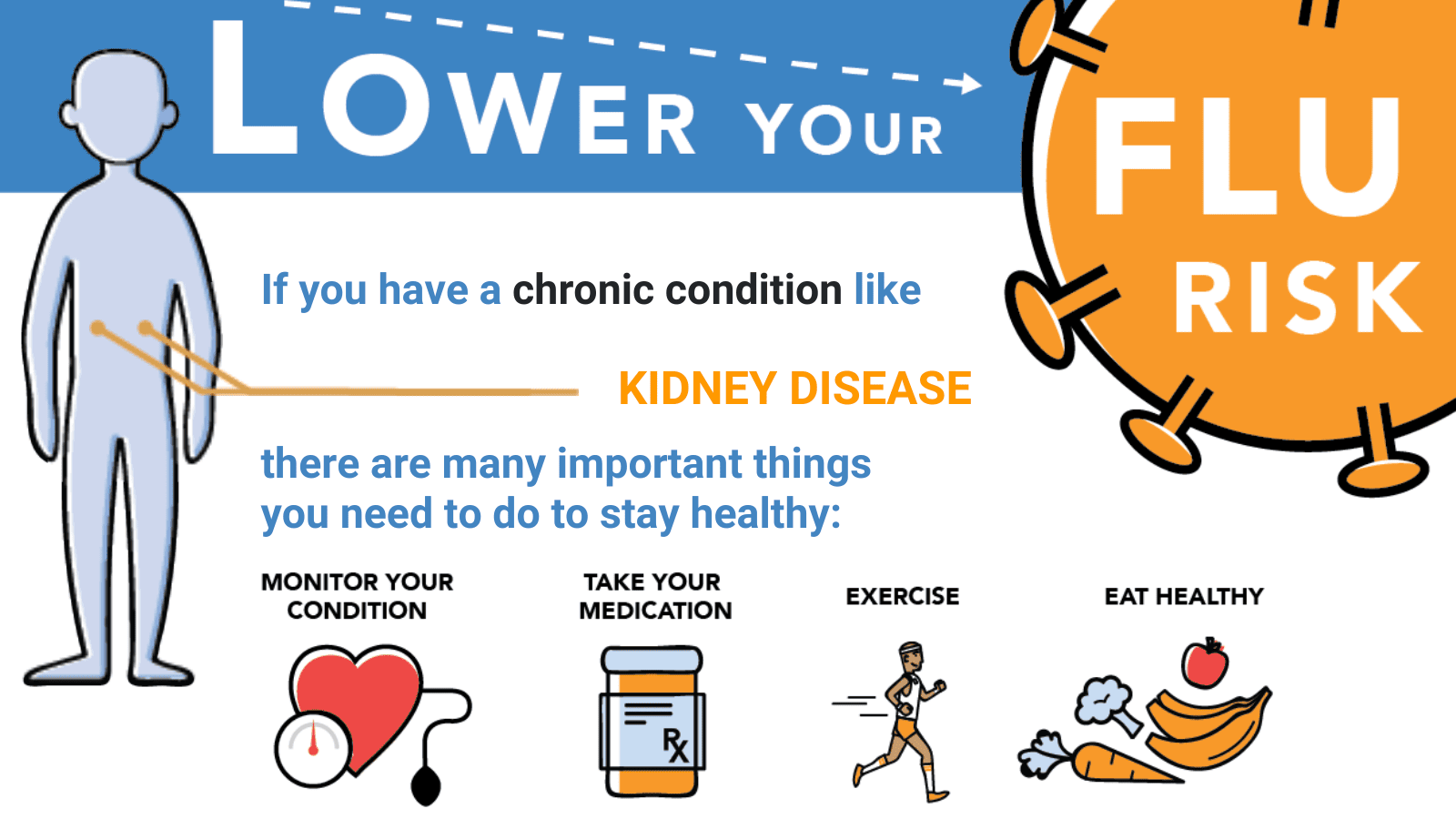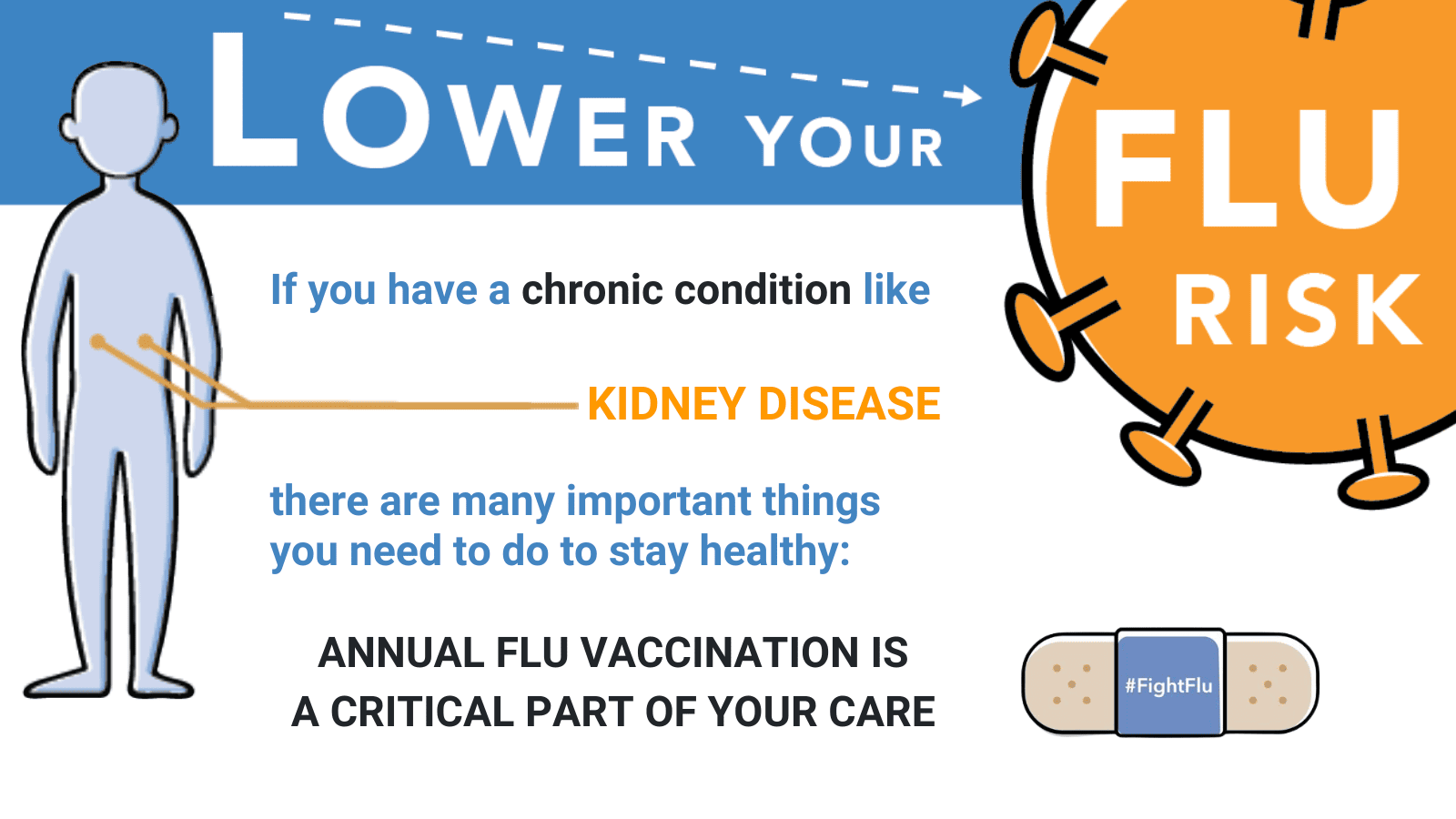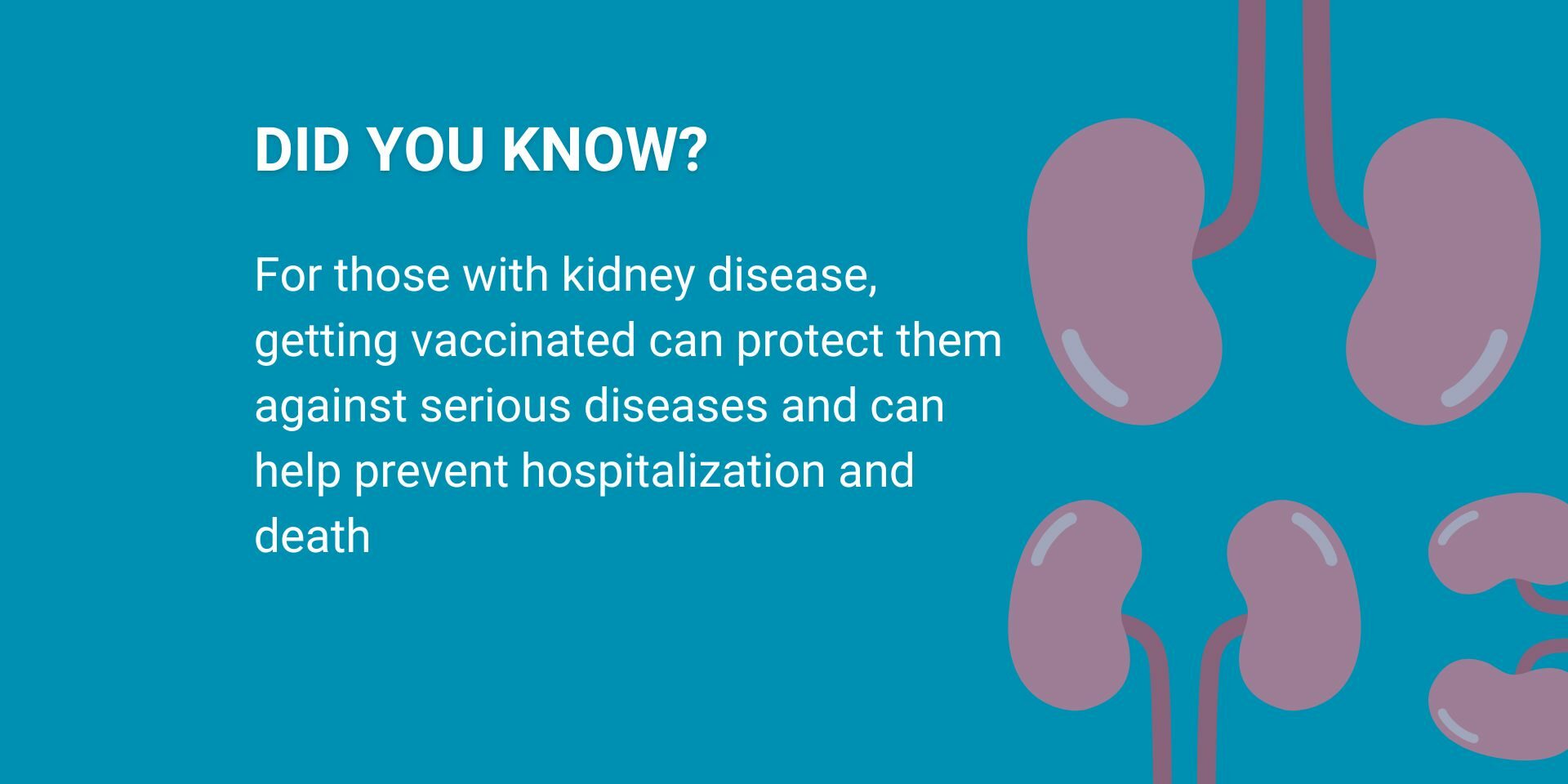
March is National Kidney Month, and the National Foundation for Infectious Diseases (NFID) is raising awareness about the importance of vaccines for those with kidney disease and other chronic health conditions.
Kidney disease affects millions of people worldwide, and it is important for those with kidney disease to understand how important vaccines are to their overall health. Vaccines play a crucial role in preventing infectious diseases and there are specific considerations for people with kidney disease. Here are 3 key things you need to know about vaccines and kidney disease:
- Vaccine Effectiveness: People with kidney disease are at a higher risk of developing serious complications from infections, making vaccination particularly important. However, their immune response to vaccines may be weaker compared to those with healthy kidneys. This means that vaccines may be less effective in people with kidney disease, especially those undergoing dialysis or with advanced kidney failure. Despite this, getting vaccinated is still recommended because even partial protection can reduce the severity of disease.
- Vaccine Safety: Many vaccines are safe for those with kidney disease, but there are some exceptions. Live vaccines, such as measles, mumps, and rubella (MMR) vaccine, varicella (chickenpox) vaccine, and nasal spray flu vaccine, are generally not recommended for people with weakened immune systems, including those with kidney disease. Instead, they should opt for inactivated vaccines, which are made from killed viruses or bacteria and are considered safe for people with kidney disease.
- Timing and Frequency: The timing and frequency of vaccinations for people with kidney disease may differ from those without kidney disease. Some vaccines, such as hepatitis B vaccines, may need to be given in higher doses or more frequently to ensure adequate protection. It is important for people with kidney disease to discuss vaccination with a trusted healthcare professional, who can make recommendations specific to individual circumstances.
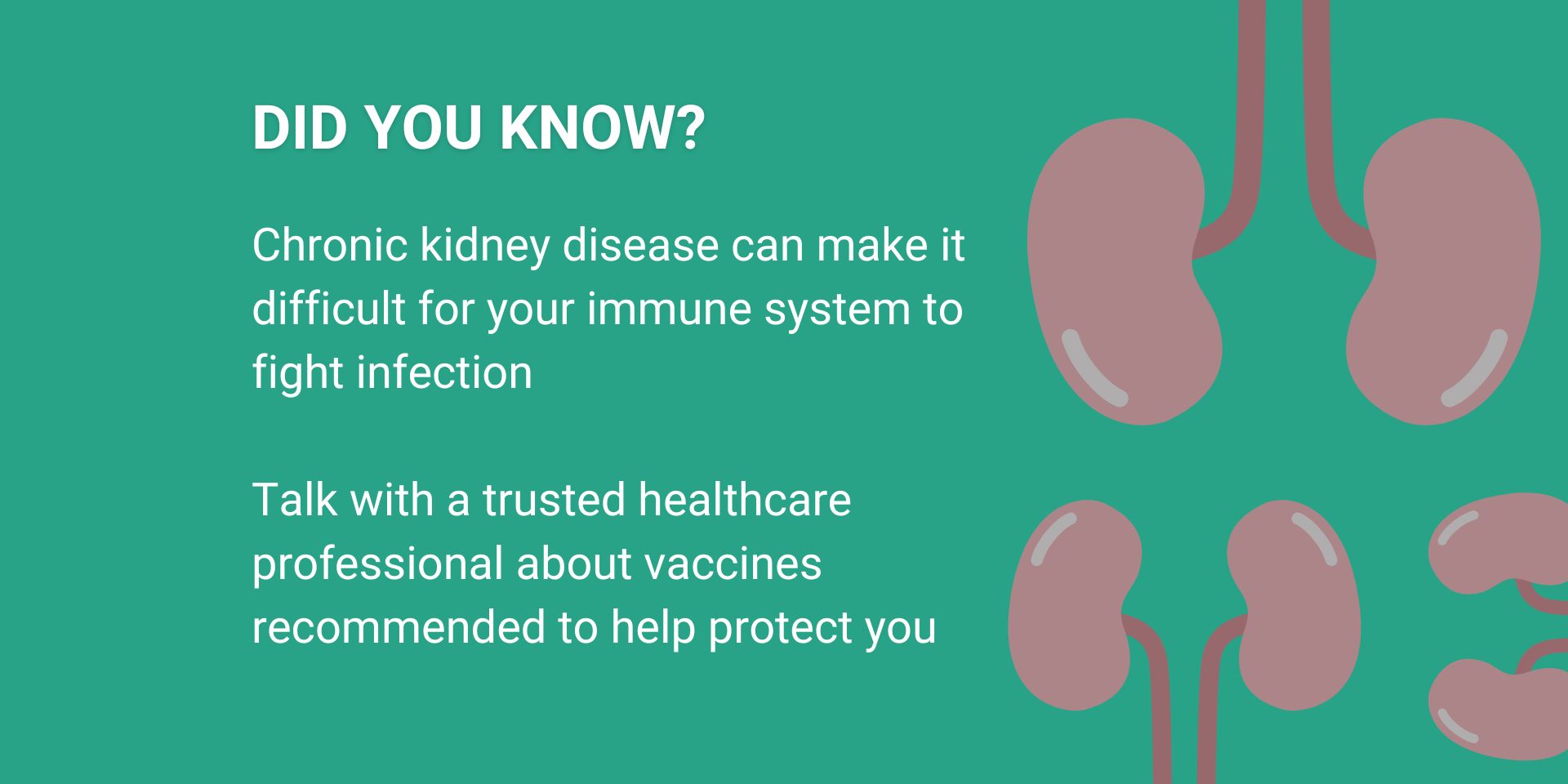
Vaccines are an essential part of protecting the health of those with kidney disease—while their immune response to vaccines may be weaker, getting vaccinated still provides valuable protection against serious infections. It is important for people with kidney disease to work closely with a trusted healthcare professional to ensure they receive the right vaccines at the right time and in the right dosage. Doing so can help protect their health and well-being.
Read more about Vaccines Recommended for People with Kidney Disease
Share these social media graphics to help raise awareness:
To join the conversation and get the latest news on infectious diseases, follow NFID on X (Twitter) using the hashtags #GetVaccinated and #LowerYourRisk, like us on Facebook, follow us on Instagram, visit us on LinkedIn, listen and subscribe to the Infectious IDeas podcast and Contagious Chronicles, and subscribe to receive future NFID Updates.
Related Posts

Vaccines and Heart Health: A Vital Connection
Heart disease can increase the risk of serious or fatal complications from respiratory diseases including COVID-19, flu, and RSV

5 Reasons Why Vaccines Are Good for Your Heart
For people with heart disease, getting vaccinated is as important to staying healthy as diet and exercise
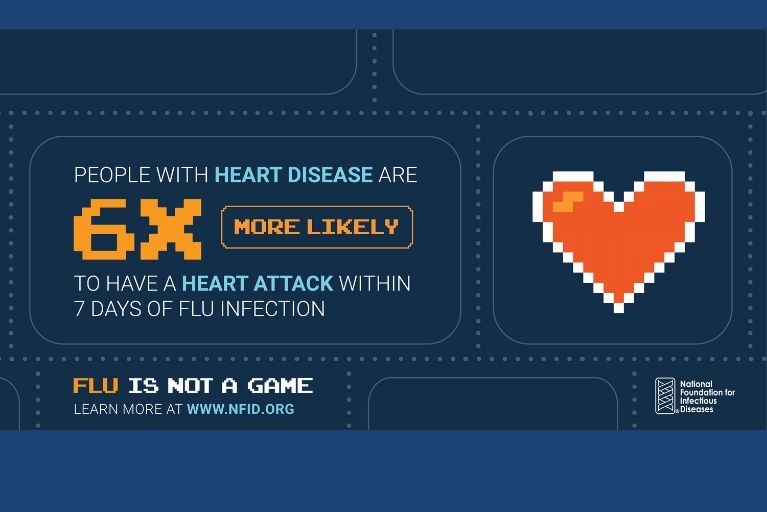
A Heart-Healthy Lifestyle Includes Vaccination
In the US, heart disease is a leading cause of death, causing one in four deaths. To help raise awareness about the importance of a heart-healthy lifestyle, American Heart Month is observed in the US each February, making it the perfect time for healthcare professionals to talk with at-risk patients about the need to stay up to date on all recommended vaccines …

